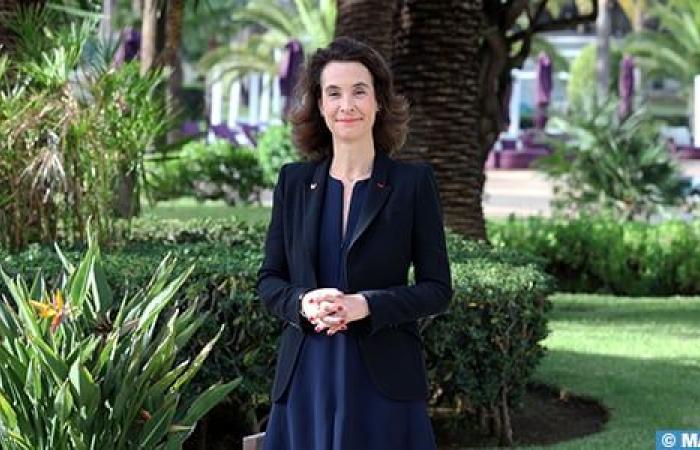Friday, November 1, 2024 at 7:06 p.m.
Rabat – The General Director (DG) of Veolia Environnement, Estelle Brachlianoff, welcomed the vision of His Majesty King Mohammed VI to overcome the problem of the scarcity of water resources and to place it as a national priority.
“Water policy is being raised to a high level, thanks to the long-term vision of HM King Mohammed VI, who made the problem of the scarcity of water resources a national priority,” said Ms. Brachlianoff in an interview given to MAP, following the signing of a memorandum of understanding between Morocco and Veolia Environnement relating to the establishment of a strategic partnership in the field of seawater desalination, on the sidelines of the state visit of the President of the French Republic to the Kingdom of Morocco, Emmanuel Macron.
Returning to the long history of cooperation between Morocco and Veolia Environnement, the DG highlighted the innovative solutions developed for Morocco, in particular to reduce water leaks during water distribution.
Thus, the seawater desalination stage crowns this collaboration, with the construction by Veolia of the Rabat seawater desalination station, the installation of which is planned for 2028.
“With this memorandum of understanding, Veolia is putting its accumulated know-how and its local footprint at the service of the Kingdom to help address climate change and its impact on water resources,” said Ms. Brachlianoff.
And note that this seawater desalination project will be the largest in Africa and the second largest in the world and will secure the supply of drinking water to the regions concerned.
“Historically very energy-consuming, we have implemented technologies to divide the energy consumption of seawater desalination plants by five, continuing to improve our performance to reduce the environmental footprint with a best value for money,” said Ms. Brachlianoff.
According to her, other desalination projects will emerge in the Kingdom, given environmental issues, reiterating the group’s desire to continue its investments in Morocco.
On this occasion, Ms. Brachlianoff highlighted Veolia’s support of Moroccan industrialists for decarbonization, citing the example of Renault of Tangier, the world’s first zero-carbon automobile factory and the treatment plant for hazardous industrial waste.
“We want to support Moroccan industrialists, since the Kingdom has significant industrial growth, and ensure that this industrial development is accompanied by economic management of water resources,” she assured.






